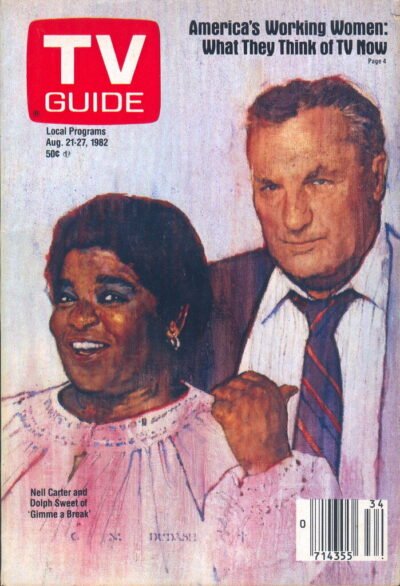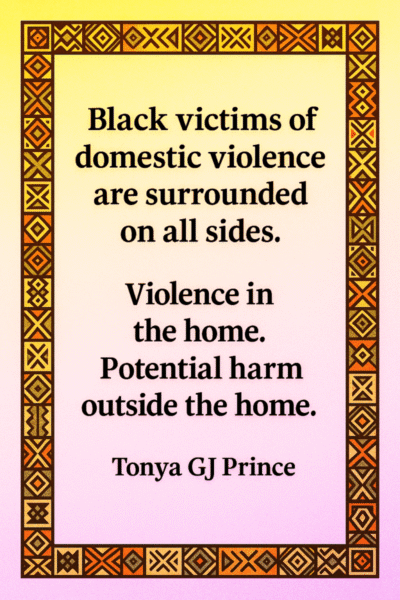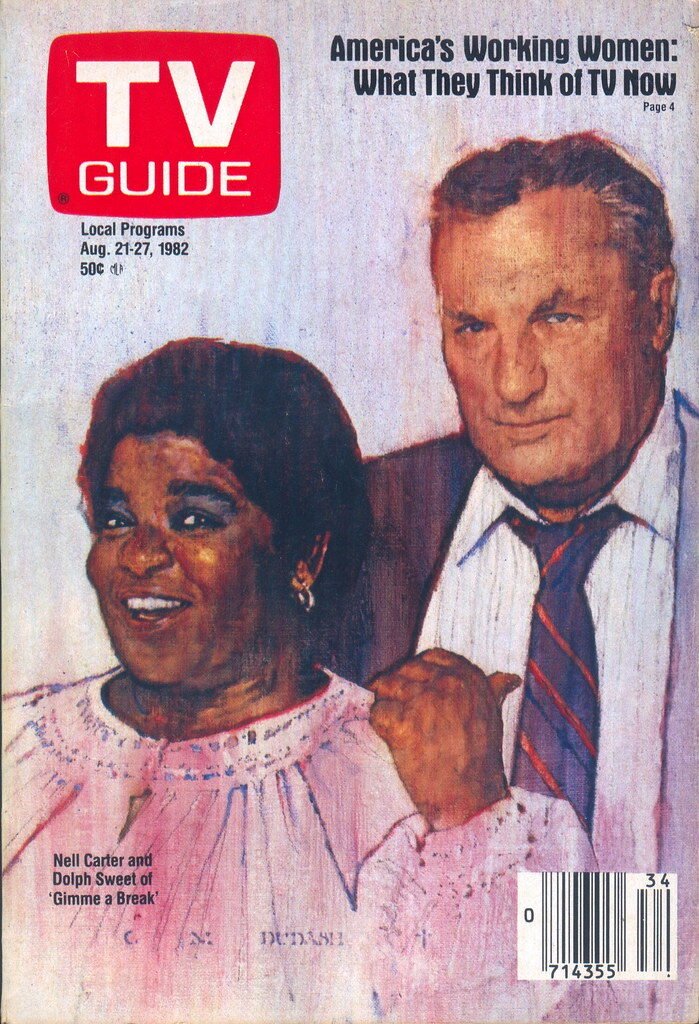A Survivor-centered truth from an advocate who has witnessed too much silenceLet’s tell the truth—because lives depend on it.I’ve work
A Survivor-centered truth from an advocate who has witnessed too much silence
Let’s tell the truth—because lives depend on it.

TV Guide #1534 Nell Carter & Dolph Sweet (chief) from the hit series “Gimme a Break”
I’ve worked with Survivors for over 30 years. Women from every background and every walk of life. And I’ve sat across from too many Black lesbian Survivors who were navigating something no one warned them about:
It wasn’t just the abuse that harmed them. It was the system’s response to their pain.
⚠️ What I Witnessed as an Advocate
When Black lesbians tried to seek help—real help—they were often met with:
Mockery: “Sounds like a catfight.”
Minimization: “Two women fighting? You’re probably both just emotional.”
Dismissal: “There’s no real danger here. No man involved.”
Confusion: “Who’s the abuser? Who’s the victim? You both look fine to me.”
- Harassment: “Why don’t you two make up so that we can all be friends. Ya know?”
It didn’t matter if there were bruises.
It didn’t matter if she was terrified.
What mattered was that the harm didn’t fit the story the system was ready to hear.
And so, many of them stopped telling it.
🛑 The Systems Were Not Built for Black Lesbian Survivors
 These women faced judgment and disbelief:
These women faced judgment and disbelief:
In courtrooms, where judges didn’t know how to handle “two women fighting” and defaulted to criminalizing both
In hospitals, where staff made jokes or asked invasive questions
In shelters, where they were either turned away or met with suspicion
In communities, where they feared outing themselves would bring more danger than staying
For some of them, the abuse behind closed doors was terrifying—
But the thought of being laughed at, locked up, assaulted, or left unprotected in public was worse.
That’s what kept them quiet.
That’s what influenced their decision to stay.
🧭 Why Patriarchy Is Still at the Center
Even when there’s no man in the relationship, patriarchy still runs the system.
It tells women that if there’s no man present, it can’t be “real” abuse
It erases lesbians from conversations about danger, control, and survival
It punishes women for defending themselves, especially when they don’t fit the “ideal victim” mold
It creates systems that serve men by default—and ask everyone else to adjust
- It questions all of her choices up until that point.
- It continues to blame her for not being someone else’s version of a “good girl.”
Let’s be clear:
Black lesbian Survivors are not confused. The system is.
The system is confused about what real harm looks like when women aren’t performing fear the way it expects.
💬 Survivor Voices (Voices Like Theirs)
“I called the police after she tried to choke me. We were both arrested. I was the one with the bruises.”
“People say abuse is about power. Then why didn’t anyone help me when she had all the power and I had none?”
✊🏾 We Must Expand the Frame
Black lesbian women do experience domestic violence.
Not in theory. In truth. In homes. In silence.
And they deserve:
To be believed
To be protected
To have access to trauma-informed services
To be seen as Survivors, not side notes
We must create spaces where they don’t have to first explain their humanity before they’re helped.
🌟 If You Are a Black Lesbian Survivor
You do not need to fit someone else’s mold of “victim” to deserve protection.
Your pain is valid.
Your story is real.
You are not alone.
And you do not need to suffer in silence to protect someone else’s comfort or reputation.
You are not “too much.”
You are not “just dramatic.”
You are not the “aggressor” because you defended yourself.
You are a Survivor.
And we see you.
*Note: This post isn’t meant to exclude any other race of lesbians. However, recently the violence in these specific relationships has been framed in a way that doesn’t center the voices and experiences of Black lesbians who attempt to get help from therapists, faith communities, law enforcement, shelters, and other community service providers. That’s not a complete picture of a problem. That’s not how we arrive at a solution.
5 Facts about Nell Carter
She was a powerhouse of stage and screen.
Nell Carter rose to national fame starring as Nell Harper in Gimme a Break! (1981–1987), becoming one of the most recognizable Black women on television during the 1980s.Broadway made her a star before TV did.
Her performance in Ain’t Misbehavin’ earned her a Tony Award (1978), where her voice, comic timing, and commanding presence electrified audiences.Her voice was legendary.
Carter’s rich, gospel-rooted vocals were central to her appeal. Whether belting show tunes or delivering comedic lines, she carried an unmistakable authority and warmth.She lived openly as a lesbian later in life.
Nell Carter publicly acknowledged her sexuality in the 1990s, becoming an important visibility figure at a time when LGB representation—especially for Black women—was far more limited and risky.Her legacy bridges multiple communities.
She remains celebrated not only as an entertainer but as a figure of resilience and authenticity across Black cultural history, television history, and LGB visibility.
Why Nell Carter still matters:
She stood at the intersection of talent, visibility, and courage. Her career reminds us that representation is not just about being seen—it is about being unforgettable.
[wesurviveabuse.com] | [rosaschildren.com] | [survivoraffirmations.com]
Share if you feel safe and ready—your voice might be the lifeline someone else needs. And if you do share, remember to cite the messenger. Words carry legacy.
